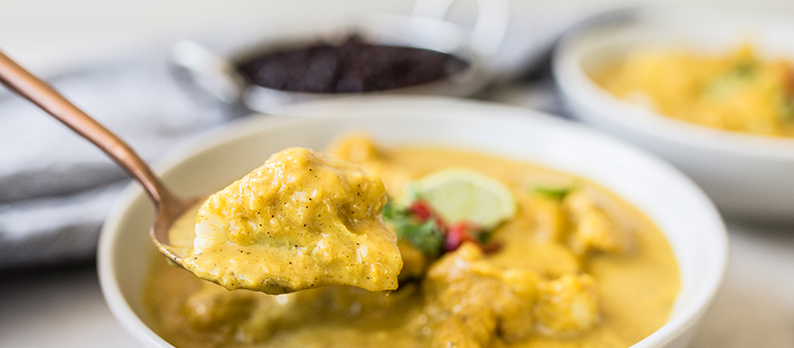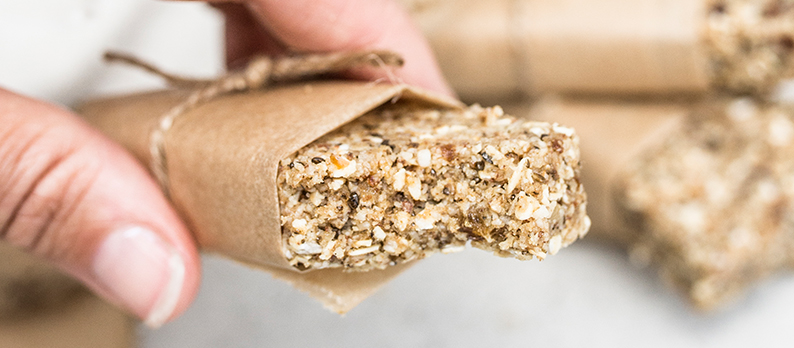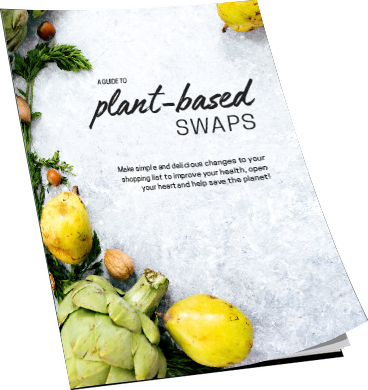Oooo, the dirty ‘V’ word. Mind out of the gutter, not that dirty word. The other one. With terms such as ‘plant based’, ‘flexitarian’ and ‘chegun’ in regular use these days, there are plenty of alternatives one can use to describe their eating choices without having to use the dreaded V word… VEGAN. This one guy has even created a brand new term to replace it – ‘reducetarian’ – in hopes of eliminating the negative attention drawn by the word.
Many people are hiding behind these other terms even if they’re following a ‘vegan’ lifestyle. Why? Because the word ‘veganism’ seems to stir feelings of irritation, defensiveness, sometimes even fury among certain others. Awkwardness is another common reaction. Quick, change the topic of conversation and avoid eye contact while I sit here and eat my ham sandwich. That kind of awkwardness.
One might even say that poking fun of vegans is an awkward reaction. Go check out any old post about veganism on social media and you’re bound to find hilarious jokes being thrown about. You know, things like “Save a cow, eat a vegan.”
So what’s with the stigma?
Why do vegans cop so much slack?
VEGANISM IS SEEN AS EXTREMIST.
The term ‘vegan’ was first coined in 1944 by a man named Donald Watson when he established the Vegan Society. He promoted the term as a philosophy rather than a diet. Don was seen as a wild extremist for being among the first to recognise that our society was essentially built on the exploitation of animals and for taking a stance against it.
People thought it was ludicrous, claiming he would not survive without eating animals or their byproducts. In 2005, he passed away peacefully at age 95 after outliving his harshest critics and proving to the world that you can live a long and healthy life on a plant based diet.
Back in the 40’s there were hardly any vegetarians, let alone people who chose not to eat any animal products. So it’s no surprise that Donald Watson’s movement seemed totally drastic. That initial eyebrows-raised, eyes-rolling objection that so many had to the concept has only been passed down two generations. Some of us still have family that were around in the 40’s, so it’s only natural that the lack of understanding and disapproval of veganism still sticks in 2018.
VEGANISM IS STILL ASSOCIATED WITH HIPPIES. [**EYE ROLL**]
‘Vegans’ and ‘hippies’ were perhaps synonymous in the 70’s, but not anymore people! Veganism has gone from fringe movement to global uprising in a relatively short period of time.
Consumer demand for meatless food increased 987% in 2017 alone and initiatives such as Veganuary are seeing exponential annual growth. You only need to look at all the exclusively plant based eateries that are popping up around the globe to realise that this thing is really happening.
The development of plant based proteins and ‘clean meats’ (i.e. lab-grown meat) is rapidly on the path towards becoming mainstream. As major investments in the industry continue, it’s predicted that it will be worth $5.2 billion (USD) by 2020. That ain’t no hippie fringe movement.
VEGANISM MAKES PEOPLE THINK ABOUT THINGS THAT MAKE THEM UNCOMFORTABLE.
There are some facts and figures out there that most people would prefer not to know about. There’s some footage that they most definitely would rather not see, because it would spoil their food. Being in the company of a vegan will often make people start to think about what might have happened to their food before it made it to the supermarket shelves. And quite often, this makes them uneasy.
THERE ARE SOME ANGRY VEGAN ACTIVISTS.
It’s true. For every angry vegan-hater, there’s an angry vegan. Probably because we’re all human. However, angry vegans plus animals rights activism usually equals a whole lot of damage to the term ‘veganism’. Newbie vegans are often angry because they have acknowledged the facts and figures that they chose not to for so long. They have watched the aforementioned footage and it makes them mad at themselves and at the world.
And sometimes it’s not pretty. It was Gloria Steinman who said “The truth will set you free, but first it will piss you off.” Word. But coming at anything from a place of anger will often make a person look like a fool. Hot-tempered vegan activists? Cue the bad press.
VEGANS CAN COME ACROSS AS SELF-RIGHTEOUS.
Vegans are often described as do-gooders with a ‘holier-than-thou’ attitude. In most cases, I believe what’s actually happening is that people who choose to eat animals will often take another’s choice not to eat them as a dig at their own moral virtue.
The truth is, most vegans have been meat-eaters in the past so they get it. They have friends, family and often partners who are non-vegans so they aren’t out to judge. They understand the conditioning that we’re all brought up with, to hold importance over the lives of some animals and not others. Some will never see past this conditioning and that is ok. Many will, but all in their own time.
SO… HOW DO WE HELP BREAK THE STIGMA SURROUNDING VEGANISM?
If you live a vegan lifestyle, there’s a few things you can do to help ease some of the distaste for the ‘V’ word:
- If you’re a passionate believer in the vegan philosophy, do the best you can but recognise that there’s no such thing as a perfect vegan. You will slip up, and that is ok.
- Be really in tune with how you come across to others when you talk about your veganism. By all means, share about why you make the choices you do but in a way that’s not self-righteous.
- Don’t meet anger with anger. It’s not worth your energy. If your lifestyle choices makes someone mad, it’s them that has the issue.
- Don’t be judgey of non-vegans. Remember that you (probably) used to be there too. Most of us were raised with the same conditioning.
- Invite your non-vegan friends over for vegan feasts – when they know how good the food is, they might not be so scared of the ‘V’ word!
If you choose not to be vegan:
- Don’t feel morally berated or offended by people that are. If it really offends you, it might be worth taking a deeper look at the reasons why.
- If you come across an angry vegan, don’t judge all vegans by the actions of that one person.
- Don’t be afraid to ask questions and start a conversation with a vegan. We need more healthy discussions around the subject of our food choices as its a big issue for the future of our planet.
- If you’re drawn to the concept of veganism for whatever reason but don’t know where to start, think in baby steps. Small changes do make a difference!
I dream of a world – and I think it’s very possible in the near future – where the stigma surrounding veganism is no longer existent. Ultimately, all of us need to just give each other a break and come at the subject from a place of mutual respect and understanding. No matter which side of the fence you’re on.
After all, the underlying message of veganism is one of compassion, for ALL species, including our fellow homo sapiens.






Hi Aleisha, thank you for presenting such an informative article on the stigma of veganism. You’ve made some excellent points regarding the cultural and social dynamic of veganism. I also came across some research that validates the stigma of the “V” word amongst college students. Which is crazy, as that age group are also the most likely to be open to a vegan lifestyle. Michael
Thanks Michael 🙂 Love your website by the way, thanks for doing what you do.